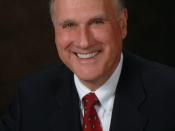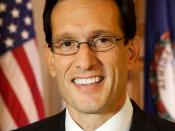Pivorius 1
Pivorius 4
The Politicians Manifesto: In God We Trust
One in every five Americans and one in every three under thirty years old consider themselves religiously unaffiliated (Grossman). These numbers should represent our collective congress. Well, that could not be further from the truth. According to The Pew Forum, in 112th congress less than one percent of representatives were religiously unaffiliated. Now that is statistically impossible. Eight states have amendments that prohibits people to hold public office if they do not believe in a god (Friendly Atheist). What about the other 42 states, where all congress non-believers are hiding. Is it morally acceptable for politicians to lie about belief in a deity? Politicians should not lie about their beliefs in a deity if they do not believe in one, because lying to their voting constituents is morally wrong and does hinder a long term goal of changing the negative view of our culture towards non-believers.
People vote for an individual, believing that their representative is telling the truth. "Privately, we know that there are 27 members of congress that do not believe in a god" said, Herb Silverman, President of Secular Coalition of America. There are certain situations when public officials should be allowed to withhold information from their constituents, if that information is potentially harmful to the wellbeing of the country. In the case of lying about beliefs in a Supreme Being or god, there is no morally acceptable reason why a congressperson should lie about this subject. In Schlossberger's book A Holistic Approach to Rights, he writes, "One ground of the general right to the truth is active membership in the moral community: active members of the moral community are morally entitled to expect that others will not lie to them" (199). It...


